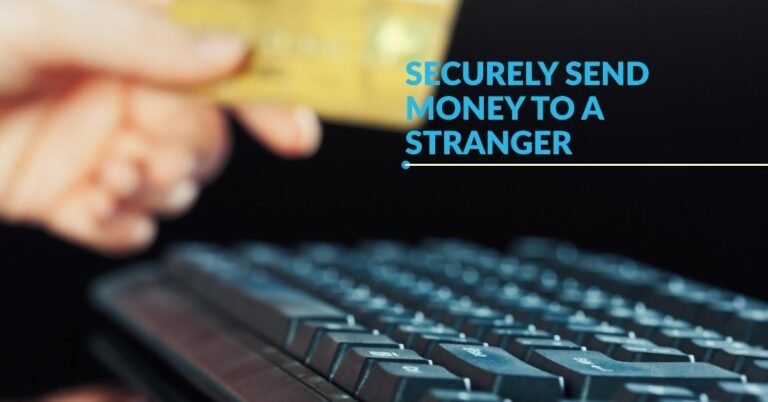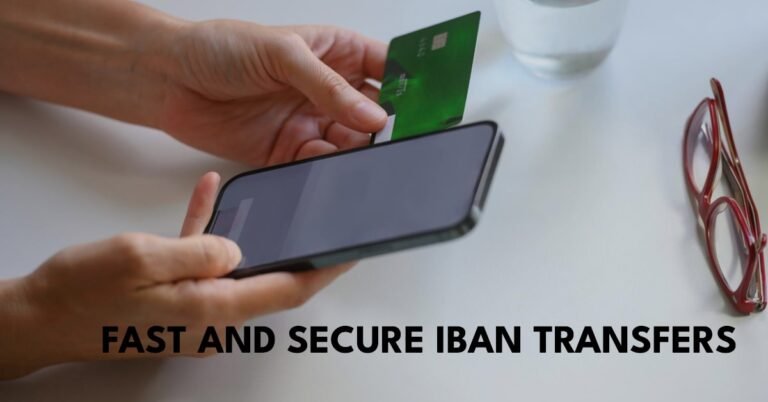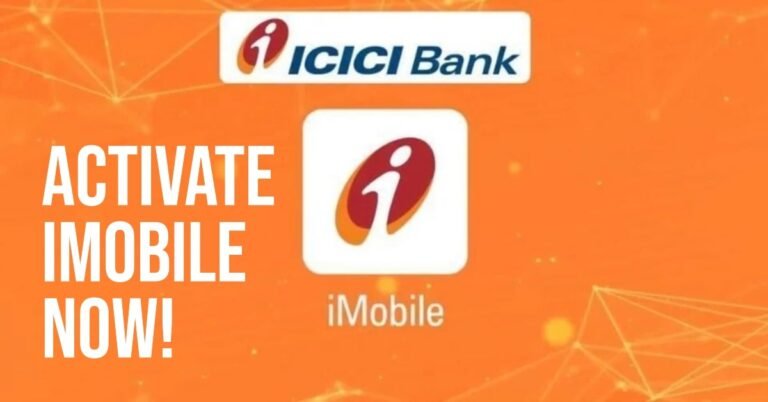Chime Bank Review (2025): The Pros, Cons, and Hidden Truths
Digital-only banks like Chime are challenging traditional banking by promising convenience, speed, and no fees. But is this new approach a smart move for your money, or are there hidden risks?
This in-depth Chime review for 2025 cuts through the hype. We’ll cover the pros and cons, and answer your most pressing questions—from its safety and fees to how it compares against regular banks and Cash App. We’ve analyzed Chime’s features, terms of service, and common user reviews to give you a balanced and unbiased look.
Chime: The Bottom Line (2025)
| Overall Rating: ★★★★☆ (4/5) | The Quick Verdict |
|---|---|
| Chime is an excellent, safe, and fee-free banking alternative for the modern, mobile-first user. It excels at everyday spending and saving but falls short for those who need the services of a traditional, physical bank. |
| Best For: | Not Recommended For: | |
|---|---|---|
| ✅ Fee-conscious individuals and students. <br> ✅ Anyone who gets paid via direct deposit. <br> ✅ People looking to build credit with the Credit Builder card. | ❌ Small business owners. <br> ❌ Users who frequently deposit cash. <br> ❌ Anyone needing complex services like wire transfers or cashier’s checks. |
Understanding Chime – What Is It, Really?
First, let’s look at what Chime is and how it operates within the financial industry.
Is Chime a Real Bank? The Most Important Question
This is the most fundamental question, and the answer is crucial for building trust. No, Chime is not a bank. It’s a financial technology (fintech) company. What this means is that Chime doesn’t hold a banking charter itself. Instead, it provides the mobile app, debit card, and user interface, while the actual banking services are provided by its FDIC-insured partner banks. For you, the user, this means your day-to-day interactions are with Chime, but the underlying account is held at a traditional bank.
Which Bank Owns Chime?
Chime is not owned by a bank; it is a privately held financial technology company. The banking services for Chime are provided by two key partners: The Bancorp Bank, N.A. and Stride Bank, N.A. Both of these institutions are members of the FDIC. This partnership model is common in the fintech space and is what allows Chime to offer banking services without holding a costly banking charter of its own.
Is Chime Trustworthy and FDIC Insured?
Yes, Chime is trustworthy and FDIC insured. Because Chime partners with FDIC-member banks, your money is FDIC insured up to the standard $250,000 limit per depositor, for each account ownership category. This is known as ‘pass-through’ insurance. It means that even though you interact with the Chime app, your funds are held and protected by a government-backed agency just as they would be at any traditional bank. This directly answers the question, “How much money is safe to keep in Chime?“
If There Are No Fees, How Does Chime Make Money?
This is a common point of skepticism, but the answer is straightforward and builds trust through transparency. Chime primarily makes money through interchange fees. Every time you use your Chime Visa® Debit Card to make a purchase, Visa charges the merchant a small fee. A portion of that fee is paid to Chime. This is the same revenue model used by many banks and credit card companies, and it allows Chime to offer a fee-free model to its users without monthly or overdraft fees.
With a clear understanding of what Chime is and how it makes money, we can now dive into its best features. Next, we’ll explore why so many people are choosing Chime and what makes it so appealing.
The Pros – What Is So Special About Chime?
Now that we’ve covered the basics, let’s explore the key benefits that have made Chime a popular choice for millions of users.
The Advantages of Banking with Chime
The main draw of digital-only banks like Chime is the benefits they offer over traditional institutions.
- No Monthly Fees or Overdraft Fees: This is their biggest selling point. Chime has no monthly service fees, no foreign transaction fees, no minimum balance requirements, and, with its SpotMe® feature, no overdraft fees. This directly addresses the question, “Is there a monthly fee for Chime?” and is a huge departure from most traditional bank accounts that can charge fees for maintenance or low balances.
- SpotMe®: Fee-Free Overdraft: SpotMe is a key feature that provides a small, fee-free overdraft buffer. It allows eligible members to overdraw their account up to a certain limit (starting at $20 and up to $200) on debit card purchases without charging a fee. To be eligible for this feature, you must receive at least $200 in qualifying direct deposits every 31 days. The initial limit is set by Chime and can be increased over time based on your account history and direct deposit activity. This is a direct answer to “How negative can you go with Chime?“
- Get Paid Early: Chime offers early direct deposit, which can make your paychecks available up to two days sooner than with a traditional bank. The reason this works is that Chime processes payroll files as soon as they receive them from employers, rather than waiting for the official payday. This is a huge perk for anyone who lives paycheck to paycheck.
- High-Yield Savings Account: Chime offers an optional Savings Account with a competitive APY (Annual Percentage Yield), which is often significantly higher than what a traditional brick-and-mortar bank offers. They also offer useful automatic savings features like “Round Ups,” where every purchase is rounded up to the nearest dollar and the difference is transferred to your savings account.
- The Chime Credit Builder Visa® Secured Card: This is a standout feature for anyone looking to improve their credit score. The card has no annual fee, no interest, and requires no credit check to apply. It works by having you move money from your Chime Checking Account into a secured account. When you make a purchase, the funds are pulled from this secured account, and the payment is reported to all three major credit bureaus (Equifax, Experian, and TransUnion). This reports on-time payments, which can help you build your credit history without the risk of accumulating debt.
- Large Fee-Free ATM Network: While it doesn’t have physical branches, Chime provides access to a large network of over 60,000 fee-free ATMs, including locations at Walgreens, CVS, and 7-Eleven. You can use the Chime app’s ATM locator to find the nearest fee-free ATM.
While Chime offers many great perks, it’s also important to be aware of the trade-offs and limitations. Next, we’ll explore the common drawbacks and what they mean for you as a user.
The Cons – What Are the Disadvantages of Using Chime?
No financial product is perfect. Here are the main limitations and common complaints you should be aware of.
Many of the “Chime bank bad reviews” and disadvantages of using Chime stem from the inherent limitations of a digital-only bank.
- It’s a Digital-Only Bank (No Physical Branches): This is the core trade-off. You cannot walk into a physical branch to handle issues or speak to a representative in person. All customer service is handled through the app, phone, or email. This can be a source of frustration, especially for complex issues.
- Difficulty Depositing Cash: Chime does not accept cash deposits directly. The only way to deposit cash is to use a third-party retailer like Walgreens, Walmart, or CVS, which may charge a fee of up to $4.95 per transaction. The process requires you to have the barcode in your app scanned and hand the cash to the cashier.
Important Note: While you can deposit cash, Chime relies on third-party retailers like Walgreens and Walmart, which may charge a fee of up to $4.95 per transaction. This is a key difference from traditional banks.
- No Paper Checks: Chime does not offer personal checkbooks. This directly answers the question, “Can I get paper checks from Chime?” However, you can use their “Checkbook” feature within the app to have them mail a physical check on your behalf for free. The process involves entering the recipient’s information and the amount, and Chime handles the rest.
- Limited Integrations: Can You Zelle with Chime?: This is a major point of confusion for users. While Chime is not officially a part of the Zelle network, some users have found a workaround by linking their Chime Visa® debit card to the Zelle app. However, this is not guaranteed to work and is not an officially supported method, which can lead to issues with failed transactions or funds being held. For seamless peer-to-peer payments, you’re better off using Chime’s own Pay Anyone feature or other compatible apps. For transactions that require robust buyer and seller protection, a dedicated platform like PayPal is often a better choice.
Official Stance: Chime is not officially part of the Zelle network. While some users report workarounds, it is not a guaranteed or supported feature.
- Customer Service Complaints: A common complaint among users is the difficulty with customer service, which can be slow or unhelpful when dealing with complex issues like account suspensions or disputed charges. The lack of in-person support can make these situations more challenging to resolve. Account closures, in particular, can be difficult to resolve, as users are often left without a clear reason for the closure.
Who Should Absolutely Avoid Chime?
While Chime is great for many, it can be a major headache for certain users. You should look elsewhere if you are:
- A Small Business Owner or Freelancer: Chime accounts are strictly for personal use. Using one for business income can lead to sudden account freezes and closures, which can be devastating for your operations.
- A Frequent International Traveler: Chime’s debit card has foreign transaction fees, and its services are primarily US-focused. A bank with better international support is a wiser choice.
- A “Cash-Heavy” Worker: If you’re a server, bartender, or anyone who deals primarily in cash tips, the process of depositing money via third-party retailers will quickly become expensive and inconvenient.
Addressing the Elephant in the Room: Account Suspensions
A quick search on forums like Reddit reveals a recurring, serious complaint: sudden account freezes and closures. While this affects a minority of users, it’s crucial to understand why it happens. Often, these freezes are triggered by automated security flags related to:
- Unusual Transactions: Receiving a large, unexpected payment or using your account for business-like activity (e.g., frequent peer-to-peer transfers for goods).
- Mobile Check Deposit Issues: Depositing a fraudulent or problematic check can lock your account while it’s investigated.
Our Advice: To minimize this risk, use Chime strictly for its intended purpose—personal banking and direct deposits. Avoid using it as a business account.
Now that you’re aware of both the pros and cons, it’s time to put Chime in context. Next, we’ll compare Chime head-to-head with its biggest competitors to help you decide if it’s the right choice for you.
Chime vs. The Competition
To give you a complete picture, let’s see how Chime compares to both traditional banks and other popular financial apps.
Is Chime Better Than a Regular Bank Account?
Choosing between Chime and a traditional bank account comes down to your banking habits. Chime’s primary advantage is its fee-free model and mobile convenience, which is ideal for someone who manages their finances entirely on their phone and receives regular direct deposits. In contrast, a traditional bank offers a full suite of services and the comfort of physical branches, which is essential for those who handle cash, need in-person support, or require more advanced banking products like loans or wire transfers.
| Feature | Chime (Digital-Only) | Traditional Bank (Regular) |
|---|---|---|
| Fees | No monthly fees, no overdraft fees. | Often has monthly fees, overdraft fees, and low balance fees. |
| Accessibility | 100% mobile-first; large network of fee-free ATMs. | Physical branches for in-person service and cash deposits. |
| Services | Basic checking, savings, and peer-to-peer payments. | Full suite of services, including loans, mortgages, and wire transfers. |
| Who it’s for | Fee-conscious users who get regular direct deposits and rarely handle cash. | Those who frequently deposit cash, value in-person service, or need complex banking products. |
Is Chime Better Than Cash App?
This is another frequent comparison. While both are popular financial apps, they serve different purposes. Chime is a true online bank account replacement, with FDIC-insured checking and savings accounts. Cash App, on the other hand, is primarily a peer-to-peer payment app with some added banking features. It’s great for sending money to friends but not a full-fledged bank replacement like Chime.
| Feature | Chime | Cash App |
|---|---|---|
| Purpose | A true online bank account replacement. | Primarily a peer-to-peer payment app. |
| Services | FDIC insured checking and savings accounts. | A mobile wallet with some banking features (e.g., Bitcoin, stock trading). |
| Safety | Funds are FDIC-insured up to $250,000. | Funds are only insured if held at a partner bank. |
| Who it’s for | Someone who wants a full-fledged, fee-free bank account. | Someone who primarily wants to send and receive money from friends and family. |
What Bank Account is Better Than Chime?
If Chime’s limitations are a concern, you might consider other popular online banking review options. Varo is notable because it is a true bank with its own charter, which can mean more control over its services and features. SoFi also offers a competitive high-yield savings account and a wider range of financial products, including loans and investing. Choosing a “better” option depends on whether you value a complete digital banking solution (Varo) or a broader financial services platform (SoFi).
Before we get to the final verdict, let’s address some of the most common questions people have about Chime to ensure you have all the information you need.
Final FAQs – Your Top Chime Questions Answered
Here are answers to some of the most common questions about Chime.
Does Chime do digital check deposits?
Yes, but there’s a small catch. Chime offers a mobile check deposit feature through its app, but you need to receive at least one qualifying direct deposit of any amount into your account before the feature is unlocked.
Who uses Chime the most?
Generally, Chime is most popular with younger demographics like millennials and Gen Z. It’s also a great fit for anyone who wants to avoid traditional bank fees and gets a regular payroll through direct deposit.
Is Chime a safe payment method?
The short answer is yes. Your account is protected by Visa’s Zero Liability Policy, and your funds are FDIC insured up to $250,000, providing the same level of protection as a traditional bank.
Does Chime have international fees?
Yes, Chime charges a foreign transaction fee. While there are no fees for using your card abroad, if a transaction is processed in a foreign currency, you may be subject to a fee.
What is the daily ATM withdrawal limit?
Chime has a daily ATM withdrawal limit of $500. This is lower than some traditional banks and is an important consideration if you need to withdraw large amounts of cash.
How do I contact Chime customer service?
You can contact Chime support through the app or by phone at (844) 244-6363. There is no option for in-person customer service, which is a key difference from traditional banks.
Conclusion: The Verdict – Is Chime a Good Bank for You in 2025?
Let’s summarize the trade-offs and provide a clear recommendation based on your financial needs.
Chime excels at providing fee-free, mobile-first banking for everyday spending and saving. The trade-off is the lack of in-person service and some limitations inherent to a digital-only bank.
Chime is likely a great fit if: You hate bank fees, get paid via direct deposit, rarely handle cash, and are comfortable with app-based customer service.
You should probably stick to a traditional bank if: You frequently deposit cash, value face-to-face support, or need complex services like wire transfers or cashier’s checks.
Ultimately, Chime is a powerful and safe tool for the modern, mobile-first consumer. It’s not a traditional bank, and it doesn’t try to be. By embracing its strengths—a fee-free model and excellent mobile features—while understanding its limitations, you can confidently decide if it’s the right home for your finances in 2025.
Oladepo Babatunde is the founder of TechFinanceGuide.com and a seasoned technology professional specializing in the dynamic intersection of technology and finance. As a Computer Science graduate (HND) with over a decade of hands-on experience in the tech sector since 2011, he combines deep technical knowledge with a passion for financial innovation.
Oladepo’s mission at TechFinanceGuide is to bridge the gap between powerful financial technology and the everyday user. He is committed to delivering well-researched, actionable content that empowers readers to make informed financial decisions, navigate digital payment systems safely, and understand the trends shaping our future. From blockchain and investment tools to cybersecurity and mobile banking, his articles provide clear guidance in an ever-evolving landscape.
Beyond writing, Oladepo remains a dedicated analyst of the tech landscape, constantly evaluating the breakthroughs that reshape global finance. Connect with him on LinkedIn for in-depth discussions and insights on leveraging technology in the world of finance.






